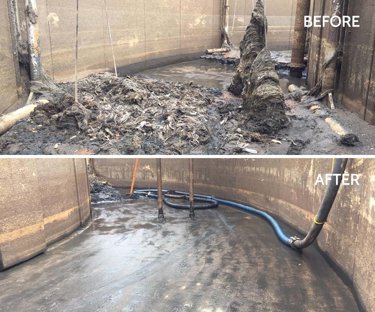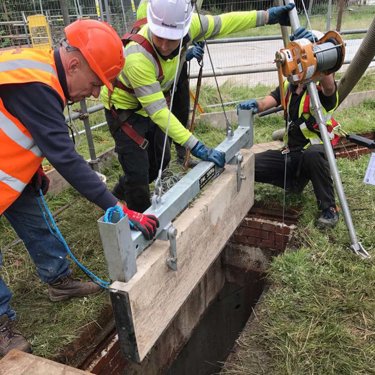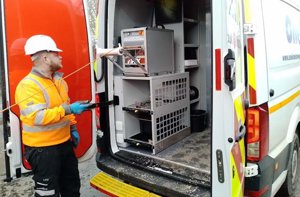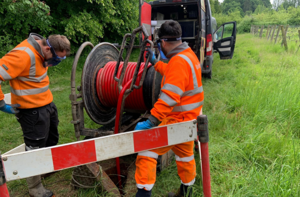
Complex tank cleaning
Are you struggling with capacity in your storage tanks?
We help water companies to improve the storage capacity of their systems by removing the build-up of silt, stones and rag from complex storage tanks. This allows them to store more sludge and empty tanks less frequently, reducing the number of tanker journeys and the associated emissions.
Our advanced equipment allows us to access deep tanks or hard-to-reach areas and screen waste material to reduce weight and disposal costs.
We have extensive knowledge of confined space entry and a wealth of experience working safely in complex environments.
We also offer both reactive and proactive sludge movement services.
- Bespoke - our specialist equipment is designed and built in such a way that we can undertake any job.
- Qualifications – our team is trained to work in confined spaces and highly knowledgeable about complex tanks and tank cleaning.
- Fast – we can respond quickly to tank failures, providing tankering services to keep the sewer network moving.
Added value
Cost and time savings
Environmental benefits
Efficiency
Unique
Complex tank cleaning
Complex tank cleaning consists of removing heavy silt, stones and rag from the bottom of storage tanks. Material is sucked up using our specialist, custom-designed deep suction tankers, which can draw waste from up to 30m deep, and fed into a screening machine.

Our mobile screening machine is one of only two in the country. It removes water from the solid material, significantly reducing its weight and volume prior to disposal. This reduces the number of journeys required, emissions, fuel and disposal costs.
Tank cleaning can be proactive or reactive.
Proactive
A proactive annual schedule of tank cleaning maintains maximum capacity and prevents the total failure of the tank. Proactive cleans also allow tanks to be emptied to check their condition and carry out maintenance.
Reactive
Reactive tank cleaning is in response to an issue, usually silt coming through outlet pipes, a blockage due to build up of debris or a problem with capacity.
Where a tank is completely blocked, sludge must be moved via tanker to different treatment works until the problem is resolved, causing unnecessary journeys and increased carbon emissions.
You might also be interested in...
Here to help you get the most out of your wastewater networks and assets
Our experts are available to help you understand your underground network, expand hydraulic capacity, and extend the lifespan of your assets.
Speak to our experts




